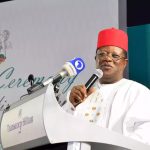In a significant development, President Bola Tinubu, acting in his capacity as the Chairperson of the Economic Community of West African States (ECOWAS), has given the green light for the return of a prominent delegation of Islamic leaders (Ulama) to the Niger Republic.

This move marks the commencement of another round of crucial dialogue aimed at resolving the ongoing crisis with the coup leaders in the region.
President Tinubu’s decision comes after a high-level meeting he held with distinguished clerics, led by Sheikh Dahiru Bauchi.
The sheikh had recently undertaken a diplomatic mission to Niamey, the capital of the Niger Republic, engaging in dialogue with the junta, which is currently under the leadership of General Abdourahamane Tiani.
The situation in the Niger Republic took a drastic turn on July 26, 2023, when the junta seized power from the democratically elected President Mohamed Bazoum.
In response to the coup, ECOWAS, under President Tinubu’s leadership, imposed sanctions on Niger and even contemplated the possibility of employing military force against the coup perpetrators.
To address the crisis, ECOWAS has authorized the deployment of a “standby force to restore constitutional order” within Niger. However, the bloc remains steadfast in its pursuit of a peaceful and diplomatic resolution to the escalating situation.
Abdulsalami Abubakar, a prominent envoy from ECOWAS and former Nigerian Head of State, returned from the Niger Republic with promising news.
He stated that the previous meeting between his delegation and the coup leaders had yielded positive outcomes, instilling optimism that diplomacy could indeed pave the way for the reinstatement of the democratically elected government of deposed President Mohamed Bazoum.
General Tiani, the leader of the junta, had earlier pledged a return to civilian rule within a three-year timeframe. Nevertheless, this proposal was met with reservations from ECOWAS, reflecting the complexity of the situation and the diverse perspectives involved.
The African Union, in response to the ongoing crisis, has taken the decision to suspend the Niger Republic, underscoring the urgency and severity of the circumstances at hand.
This coup has not only amplified global concerns but has also intensified worries regarding the Sahel region. The Sahel is grappling with an upsurge in jihadist insurgencies, with connections to groups such as Al-Qaeda and the Islamic State.
Against this backdrop, Niger becomes the fourth West African nation, following Burkina Faso, Guinea, and Mali, to experience a coup since 2020.
The neighboring juntas in Burkina Faso and Mali have firmly communicated that any external military intervention within Niger would be construed as a “declaration of war” against their respective countries, underscoring the complexity of regional dynamics.
This coup marks the fifth instance of political upheaval in Niger’s history since the country’s independence from France in 1960. The election of President Bazoum in 2021 has been hailed as a historic moment, signaling the country’s transition towards a peaceful transfer of power.
Worryingly, President Bazoum, along with his family, has been held in confinement at the official presidential residence since the coup. The international community is increasingly alarmed about the conditions under which he and his family are being held.
As the delegation of Islamic leaders embarks on a new round of dialogue, the region and the international community keenly watch for the outcomes of this critical engagement, which holds the potential to shape the future of Niger and the broader West African region.





Comments are closed.